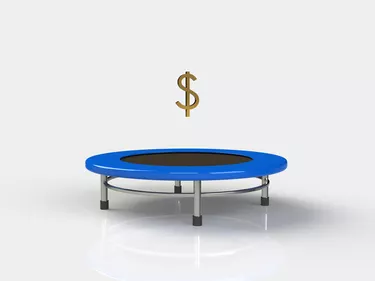
Neither federal nor state laws compel banks to redeposit returned checks or place limits on the number of times a bank can redeposit an item returned unpaid due to insufficient funds. However, major banks typically redeposit items that are returned unpaid. Banks generally do not redeposit checks more than twice, because deposited checks are stamped several times during processing and after passing through processing more than three times, most checks become ineligible.
Returned Check Fees
Video of the Day
When you deposit a check into your account, your endorsement on the back of the check acts as a guarantee. If your bank allows you to access funds prior to receiving payment for the check, you must repay those funds if the check bounces. Additionally, you must pay a returned check fee. Some people confuse returned check fees with Non-Sufficient Fund fees, but returned check fees are paid by people who deposit checks that bounce, whereas NSF fees are paid by people who write checks that bounce.
Video of the Day
Redepositing Checks
Banks must detail policies on handling returned deposit items in the deposit agreement provided to all account holders at account opening. The agreement must conform with state specific laws. State laws vary, but in most instances banks only have to notify customers about redepositing large dollar checks. If a bank redeposits a check without notifying the customer and it gets returned a second time, most banks waive the returned deposit chargeback fee.
Account Holders Depositing Returned Checks
Banks that do not redeposit returned items normally mail the returned checks back to the customer who deposited the items along with a notice that explains the reason why the other bank returned the check. If you choose to redeposit an item that your bank returned to you, the Federal Reserve's Regulation CC allows your bank to place an exception hold on the check. Exception holds last for seven business days, although your bank must make $100 of the deposited check available on the next business day.
When Checks Are Not Redeposited
If someone writes a check drawn on a closed account, the bank that formerly housed that account places a "closed account" stamp on it and returns it unpaid. Banks cannot redeposit checks drawn on closed accounts. The same applies to checks returned due to fraud and checks returned because the check writer placed a stop payment. However, stop payments last for just six months, so technically the account holder could redeposit a stop-payment check after six months have passed.